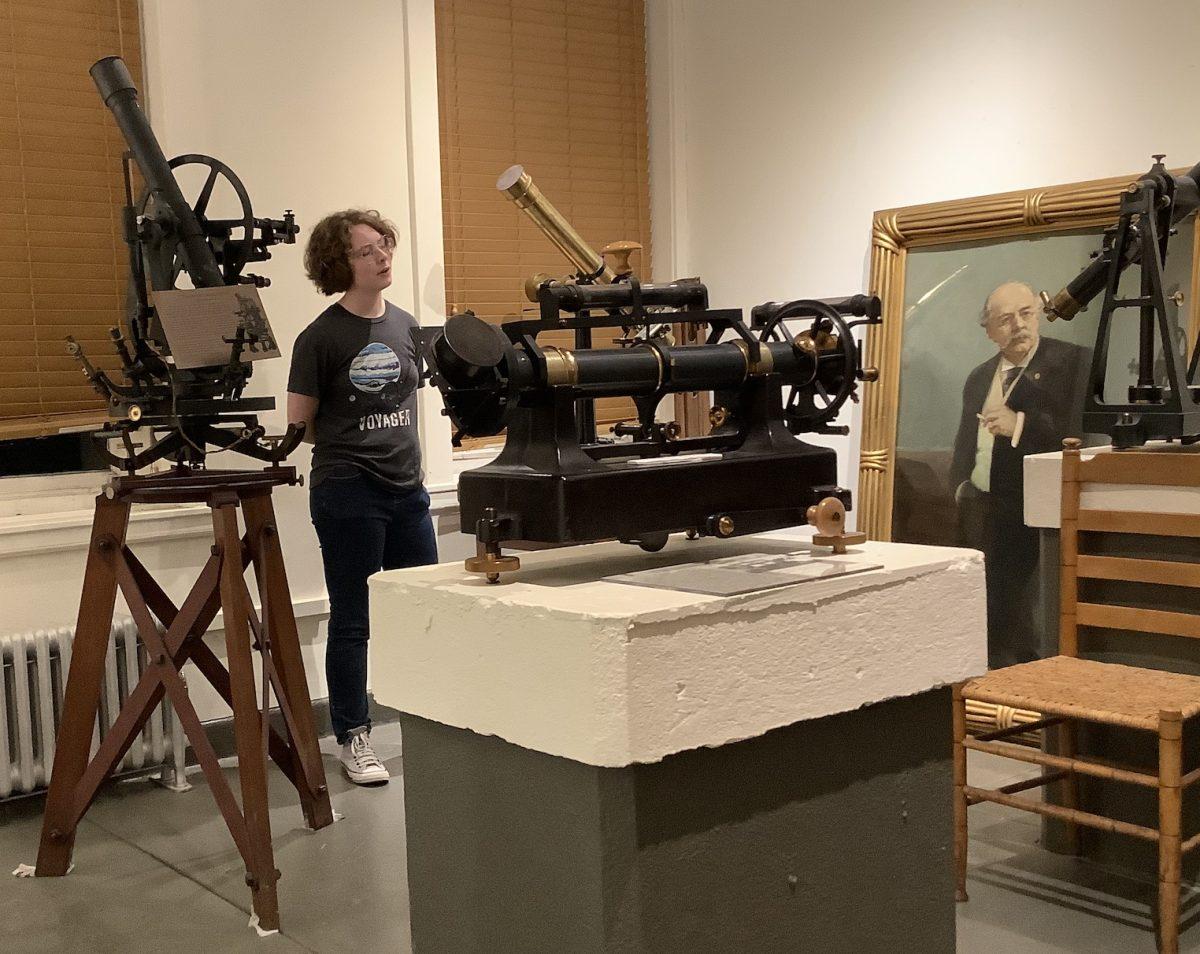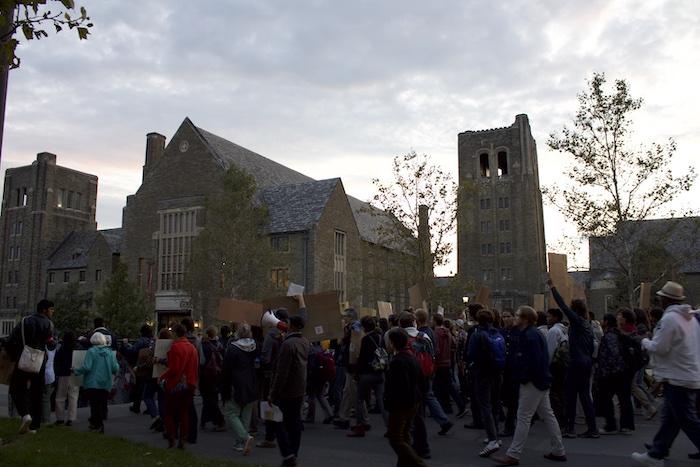Marí Larcheveque is a soft-spoken Ithaca College senior who enjoys walking their Australian Labrador mix, Joy. That quiet demeanor disappears when Larcheveque transforms into a flirtatious drag king known as Ray Decorazón.
Yet it is not Ray Decorazón, but rather Marí Larcheveque who wants to talk about International Pronouns Day, which was inaugurated Oct. 17, and a White House proposal that could change the definition of gender.
Larcheveque said they identify with the they/them pronouns because they don’t completely feel like a man or a woman. They are biologically female, but Larcheveque makes it clear that they have never ascribed to “feminine” behavior.
In college, Larcheveque explored their gender identity and decided they needed a change. So, they started performing in drag shows.
“I feel like I just got to this point where I was so fed up with my comfort zone and being not me that I was like, ‘Well, what if I try to act more confident than I am? What if I try to just disregard whatever my comfort zone is, and just do this thing for the experience?’”
This feeling led Larcheveque to create their alter ego “Ray Decorazón,” and they haven’t looked back since. They say Ray has made them more confident and outgoing.

“[Drag] has continued to keep me from going back to being too comfortable and to challenge myself to do things that I want, but I’m scared to do,” they said.
In today’s political climate, said Larcheveque, there continues to be growing threats to this new generation of LGBTQ youth. Transgender people identify with a gender that does not match the sex they were assigned at person. According to a New York Times report, a recently leaked memo revealed that the Trump administration is considering changing the legal definition of gender to “a biological, immutable condition determined by genitalia at birth.” If legalized, it could prevent transgender people from some existing federal civil rights protections.
Vanessa Zimmerman, one of the co-founders of IC Color, said this definition is not just an attack on transgender people, but the entire LGBTQ community.
“I think it is our job, the other parts of the LGBTQ community, to lift our trans brothers and sisters and non binary folks up in the best way that we can,” she said.
Zimmerman identifies as a gay woman, but said she feels the responsibility to stand up for the rights of everyone in the LGBTQ community. She believes change can start with educating people on the difference between sex and gender.

“Through that education, I think minds will hopefully begin to change and the more that minds are changed…the more likely that the government will take notice,” she said.
Zimmerman was motivated to create IC Color to make the Protestant community more inclusive. In response to cases of alleged exclusion, Zimmerman helped draft a petition to the Ithaca College administration.
Despite some negative backlash, Zimmerman was bolstered by Ithaca’s LGBTQ community and non-LGBTQ clubs.
“We got [support] from other random organizations like Spit That, which has been very open, and so has Active Minds. It’s awesome to see organizations that aren’t promoting this kind of advocacy to advocate on our behalf,” she said.
If “transgender” is eliminated as a word in the federal government’s lexicon, it could not only deny transgender people federal civil rights protection, but also deny people like Larcheveque a sense of identity.
“I definitely do not identify with being a female and what that includes…If I knew more about being transgender at a younger age, I feel like maybe I would have identified as being male,” they said.





